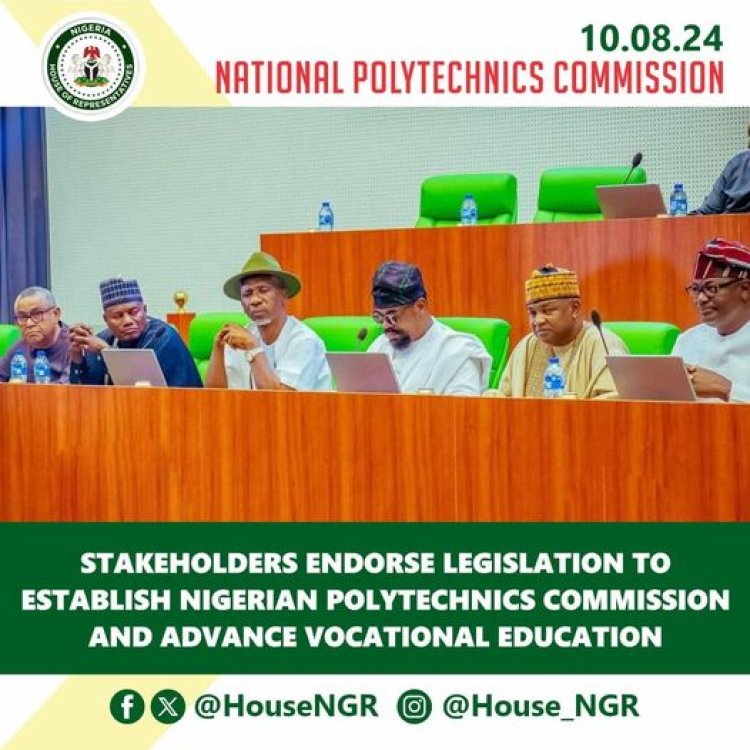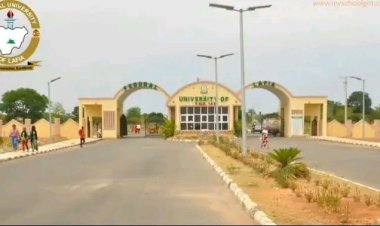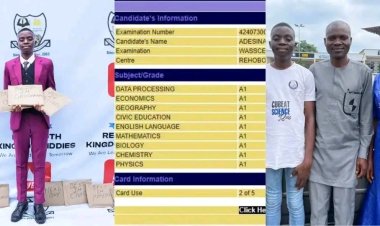Stakeholders Endorse Legislation to Establish Nigerian Polytechnics Commission and Advance Vocational Education
The House of Representatives has underscored its commitment to enhancing the quality of education and promoting excellence in Nigeria's tertiary institutions with the endorsement of pivotal legislation.

The House of Representatives has underscored its commitment to enhancing the quality of education and promoting excellence in Nigeria's tertiary institutions with the endorsement of pivotal legislation. During a public hearing held at the National Assembly Complex in Abuja, Speaker of the House of Representatives, Rt. Hon. Abbas Tajudeen, PhD, reiterated the legislative body's dedication to educational reform.

The hearing focused on a bill proposing the creation of a National Polytechnic Commission, aimed at overseeing, regulating, and coordinating polytechnic education across Nigeria. Additionally, the session reviewed two other significant bills: one to establish the Federal Vocational and Entrepreneurship Institute in Lagos State and another to set up the Federal Vocational and Skills Acquisition College in Yankaba, Kano State.
Speaker Abbas, represented by Rep. Jesse Okey-Joe Onuakalusi (LP, Lagos), opened the hearing by stressing the critical role of technical and vocational education in national development. He emphasized the importance of equipping Nigerian youth with skills that are both globally competitive and locally relevant.
“This hearing aligns perfectly with our legislative agenda to enhance Nigeria’s educational framework. In a rapidly evolving global landscape, it is essential that we provide high-quality education that meets international standards while addressing community needs,” stated Speaker Abbas.
Rep. Fuad Kayode Laguda (APC, Lagos), Chairman of the House Committee on Federal Polytechnics and Higher Technical Education, explained that the public hearing is a crucial procedural step towards enacting the proposed bills. He highlighted the bills' potential to drive socio-economic development and foster human capital necessary for building a self-reliant society.
Stakeholders present at the hearing voiced strong support for the proposed Polytechnic Commission, citing the National Board for Technical Education's (NBTE) current limitations in effectively managing over 700 institutions.
Senator Muntari Dandutse (APC, Katsina South), Chairman of the Senate Committee on Tertiary Institutions and TETFund, emphasized the need for educational programs that benefit future generations and promised the Senate’s swift action on the bills.
Permanent Secretary of the Federal Ministry of Education, Nasir Sani-Gwarzo, commended the House for introducing the legislation and expressed full support for aligning Nigerian polytechnics with global standards.
Prof. Idris Bugaje, Executive Secretary of the NBTE, called the establishment of the Polytechnic Commission a necessary advancement. He noted that specialized regulatory bodies exist for other education sectors and expressed optimism that the new commission would improve regulatory frameworks and curricula.
Polytechnic unions, including the Academic Staff Union of Polytechnics (ASUP), represented by Comrade Shammah Kpanja, also endorsed the proposed commission. Kpanja highlighted the importance of government commitment and stakeholder collaboration to achieve Nigeria’s educational and economic objectives.
Prof. Aliyu Mamman, Chairman of the Conference of Federal Polytechnics in Nigeria, attributed the sector’s current challenges to the absence of a dedicated commission and criticized a recently released scheme of service for exacerbating existing issues.
The three bills under review were sponsored by Rep. Idu Igariwey (PDP, Ebonyi), Rep. Jesse Okey-Joe Onuakalusi (LP, Lagos), and Rep. Hassan Shehu Hussain (NNPP, Kano). The 10th House of Representatives remains committed to reforming and modernizing Nigeria’s technical education system as part of its Legislative Agenda on Social Sector Reform and Development (Agenda 5).
The House of Representatives is resolute in advancing legislation crucial for equipping students with the skills needed to thrive in today’s world and contribute meaningfully to Nigeria’s economic growth.





